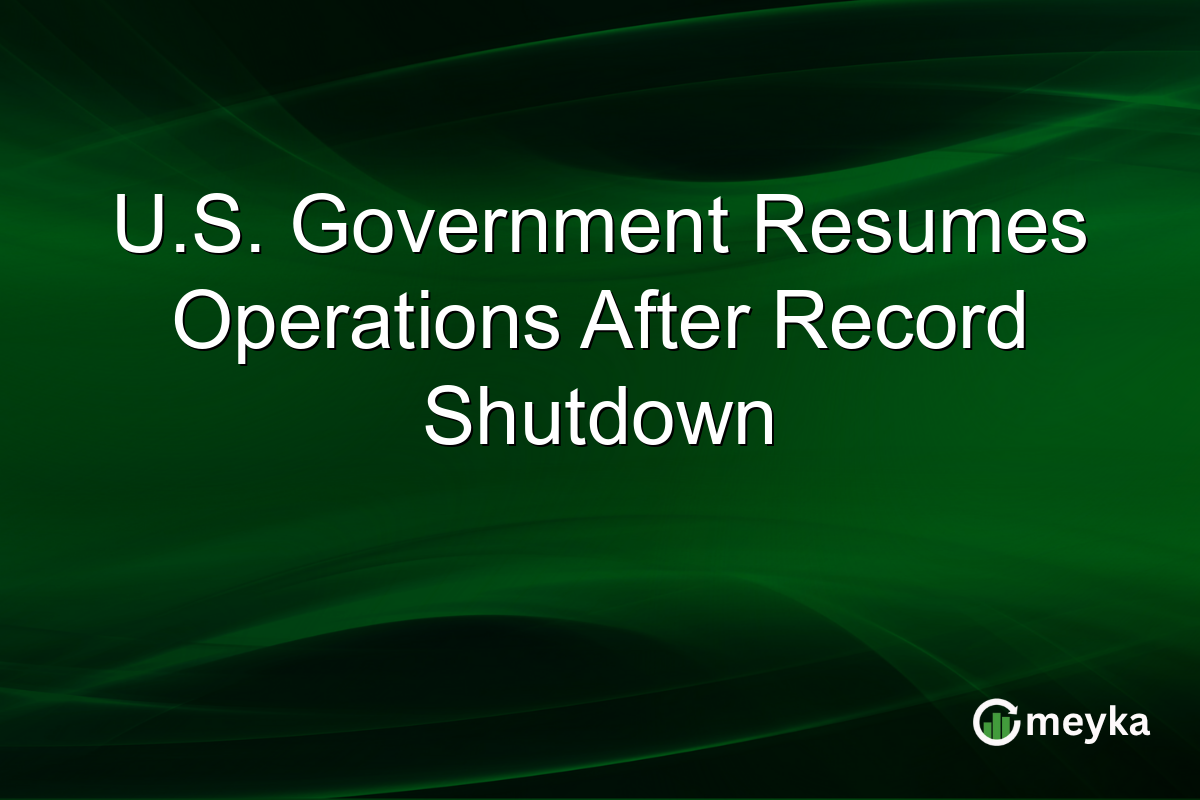U.S. Government Resumes Operations After Record Shutdown
The U.S. government has reopened after its longest shutdown in history, lasting 43 days. This unprecedented event affected nearly 800,000 federal employees who faced suspended paychecks. Sectors reliant on government funding, including air travel, faced potential disruptions. The focus now shifts to the implications for federal employees awaiting back pay and the risk of another shutdown.
Continue Reading on Meyka
This article is available in full on our main platform. Get access to complete analysis, stock insights, and more.
Read Full Article →





